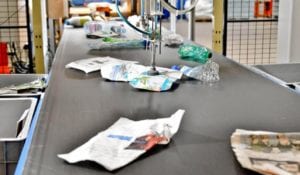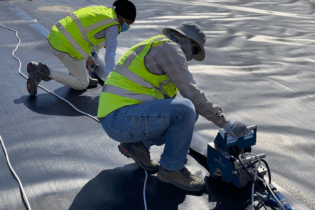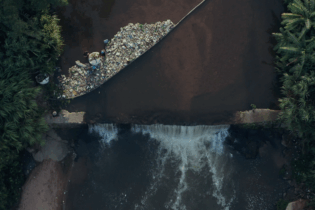Almost 190 countries have agreed to new control measures that will limit the transboundary movement of plastic waste around the world, following the recent ratification of the Basel Convention in Geneva, Switzerland.
The resolution prohibits the export of most plastic wastes to receiving countries without their prior consent, and has the potential to trigger a global paradigm shift in how the world deals with its plastic waste.Operation National Sword
Such a response was made all the more urgent since China – having previously imported and recycled over half the world’s recyclable waste, but now becoming overwhelmed by an increase in soiled and contaminated materials – enacted a ban on the import of most waste plastics in 2018, triggering a crisis of the world’s recycling economy. Countries that historically relied on exporting their waste to Chinese processors – including the US and countries in the European Union, which have exported 70 and 95 percent respectively of their plastic waste – will now have to find alternative solutions for how they dispose of this waste.Rethinking plastics
The real solution to this issue is in the circular economy and this is why the ratification of the Basel Convention is so significant: tighter restrictions on how plastic waste is handled and processed internationally will now place more pressure on countries to develop their own recycling infrastructure to process their own waste. “We need to seize this momentum to devise a sustainable solution to dealing with plastic waste that will minimise our ecological impact, now and in the future,” explains Chris Braybrooke from leading environmental services company Veolia Water Technologies. Doing so will require a complete reassessment of the lifecycle and economy of plastics. “In order to be able to reuse our plastic, we need to shift away from strong, single-use plastics to polymers that biodegrade quickly or can be recycled,” Braybrooke says. “Recycling requires products designed to be recycled, and the variety of resins, additives and mixtures used in today’s plastics industry makes recycling more complicated.”Once manufacturers commit to an eco-design plastic, the priority shifts to ensuring recyclables can be processed with maximum efficiency and speed to ensure recycled plastic can be supplied more cost-effectively and thus has increased commercial viability.
Behind some of the world’s most efficient and innovative plastic recycling plants are technologies and public-private partnerships delivered and managed by Veolia.





